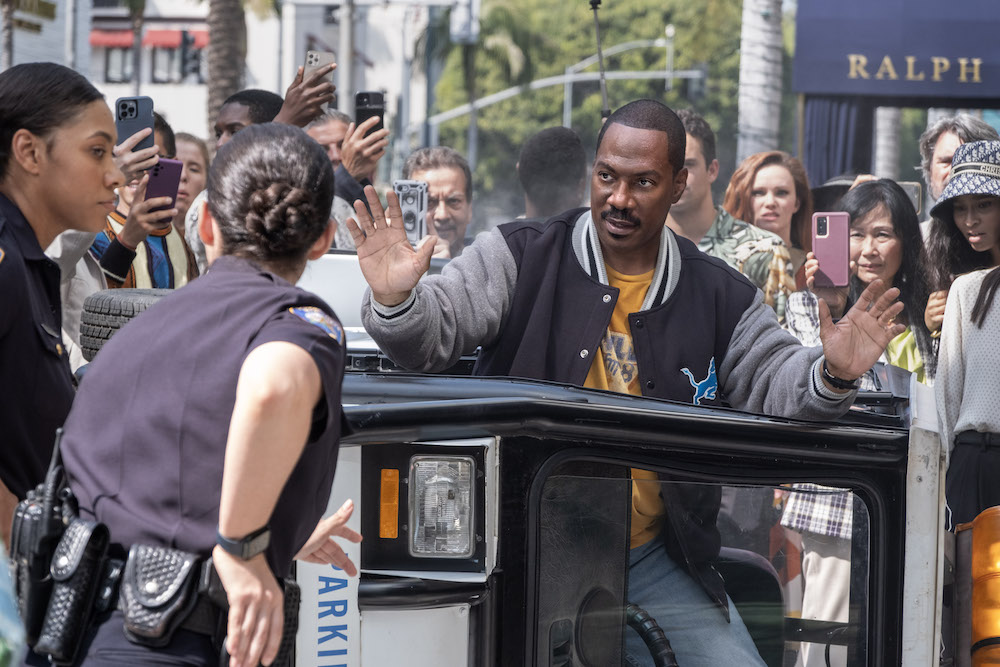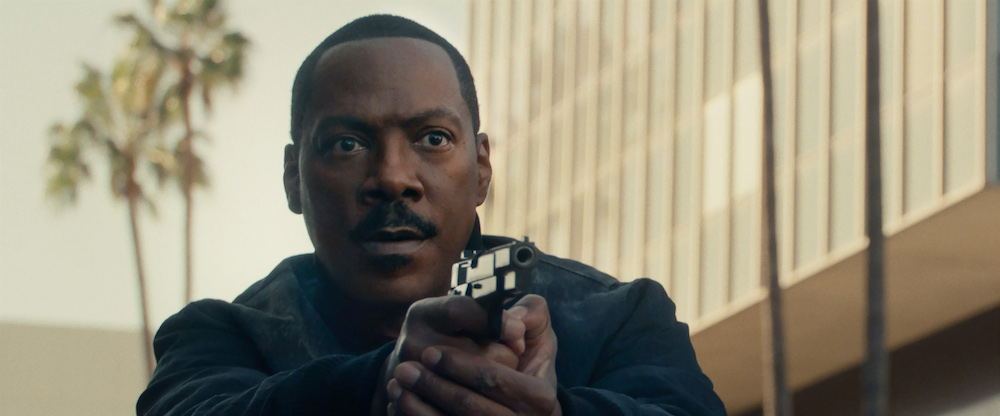Eddie Murphy’s ‘Beverly Hills Cop’ series is considered a landmark not just for the actor’s career but also for kickstarting the genre of cop comedies, which blew up following the first movie’s success. In 2024, forty years following the release of the first film, the fourth film in the series, ‘Beverly Hills Cop: Axel F,’ throws us back into Axel Foley’s chaotic world as he tries to solve a case and save people, this time his own daughter. Murphy infuses the character with his signature comedic sensibilities while delivering an action-packed story that makes Foley an action figure while keeping him grounded to make the audience feel more relatable. The story behind the character’s creation is as interesting as the character itself.
The Idea for the Film Originated from a Real Beverly Hills Cop
The first ‘Beverly Hills Cop’ movie was released in 1984, but its idea germinated in the head of Michael Eisner, then-president of Paramount, in 1975. Reportedly, he was stopped on a freeway for speeding and was met by a police officer whom he described as “extremely efficient, reasonably rude, with an air of superiority and quiet condescension.” In hindsight, the character interested him, so he decided to work on a script about a Beverly Hills policeman. The policeman who stopped him that day never came into the picture again, and the eventual iteration of the character probably turned out much different than the real man. However, the incident played a pivotal role in laying the foundation for what would turn out to be a blockbuster film series.

While the film series’ success is for all to see now, the road to making these films wasn’t easy. Despite Eisner’s excitement for the project, things didn’t get done for a long time. Over the next decade or so, several writers were brought on board to write the movie, but none got the essence of the character quite how Eisner had imagined it. It was in 1983 that he finally found a script worth turning into a movie. It was written by Daniel Petrie.
Happy with the script, the next step was to get the right actor for the role. Mickey Rourke was briefly attached but left when the filming was delayed too much. Then Sylvester Stallone came on board, bringing with him a slew of changes. He did away with the comedy and focused more on the action aspect of the film. He rewrote the script to suit what he thought could be a grittier film, but in the end, it did not align with what the producers had envisioned for the film, and Stallone left. Only when Eddie Murphy was considered was the whole thing started to take proper shape.
Eddie Murphy Brought His Own Twist to the Character
When Eddie Murphy first read the script of ‘Beverly Hills Cop,’ he was immediately taken by it and decided to do the film. He saw Axel as “the everyman that rises to the occasion” instead of some “superhero or super cop.” This stuck with him, and this is also what he thought would appeal to the audience, who would find someone relatable and funny in the character. Murphy’s knack for comedy also worked in his favor, as well as Axel’s. According to director Martin Brest, whenever he felt like the film “got into a jam,” he would ask Murphy to improvise something, and the actor would always deliver.

Murphy was encouraged to come up with lines and scenes and move things around if it seemed better to him that way. Murphy improvised several scenes in the movie, and both the film and the character were better for it. Brest called the actor “a director’s dream,” relating an incident where Axel was to gain entry into a club, but nothing on the page convinced the director to film the scene and move on. After several drafts, he felt that it would be better to see how Murphy interpreted it, and sure enough, the actor took mere seconds to come up with an entirely new persona that sealed the deal.
Murphy was also involved in deciding the look of his character. He rejected the costume ideas that the producers brought because they all seemed “too slick” for a character who doesn’t care about these things. He decided to do his own thing there as well, except the Mumford sweatshirt, which was suggested by the producers after they visited a crime scene opposite Mumford High School. The detective the producers accompanied to the crime scene also became Murphy’s inspiration, and the actor used him as a blueprint for several things about his character, including the tucking of his gun in the back of his pants.
All these details went into creating Axel Foley and presenting him as grounded and real to the audience, which eventually drew the viewers to him and resulted in the massive success of the film franchise.
Read More: Beverly Hills Cop Axel F: Is The Eastern a Real Private Club?


You must be logged in to post a comment.